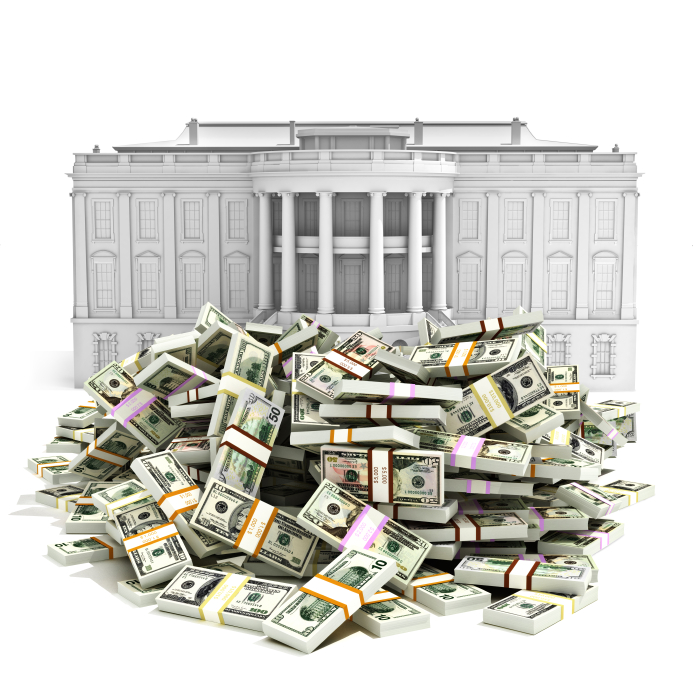 Update: On February 9, President Trump signed into law the Bipartisan Budget Act of 2018. This new law retroactively renews the §179D deduction for 2017. Therefore, commercial building owners and primary designers may now claim the deduction for qualifying energy-efficient projects completed in 2017. At this time, however, Congress has not taken any action to extend §179D for 2018 or future years. Capital Review Group will keep abreast of Congressional activity, and we will post any further updates regarding the §179d deduction.
Update: On February 9, President Trump signed into law the Bipartisan Budget Act of 2018. This new law retroactively renews the §179D deduction for 2017. Therefore, commercial building owners and primary designers may now claim the deduction for qualifying energy-efficient projects completed in 2017. At this time, however, Congress has not taken any action to extend §179D for 2018 or future years. Capital Review Group will keep abreast of Congressional activity, and we will post any further updates regarding the §179d deduction.
Enacted under the Energy Policy Act of 2005 (“EPAct”), the §179D deduction generates substantial savings for taxpayers as it rewards commercial building owners and primary designers for implementing energy-efficient upgrades. Unfortunately, this deduction has never been a permanent part of the tax code and is currently set to expire on December 31, 2016.
This week, the Senate Finance Committee is holding a hearing called “Energy Tax Policy in 2016 and Beyond.” In light of the beneficial impact that this incentive has on sustainable design, energy security, and business taxpayers, Capital Review Group is joining other advocates in urging the Committee to consider a multi-year extension of the §179D deduction. Below is a letter that CRG has sent to the Senate Finance Committee explaining the value of the deduction:
Dear Chairman Hatch and Ranking Member Wyden:
We are writing to you regarding the scheduled Senate Finance Committee hearing, “Energy Tax Policy in 2016 and Beyond.” As you strive to expand our economy and support our nation’s businesses, we urge you to consider a long-term extension of the §179D tax deduction at the earliest opportunity. This valuable incentive, which encourages energy-efficient design in commercial and multifamily buildings, is currently due to expire on December 31, 2016.
Our company, Capital Review Group, is a specialized tax consulting firm. Through our unique combination of expertise in facility engineering and tax accounting, we assist clients such as architects, engineers, and commercial building owners reduce their tax burdens. The §179D deduction is one of the most beneficial incentives for our clients and the communities in which they are located. In our years of providing services to clients to apply this deduction, we have consistently seen it serve as a powerful motivator for businesses to implement sustainable design. Given the typically expansive size of commercial buildings, energy-efficient upgrades like those incentivized by the §179D deduction can lead to a drastic reduction in energy consumption. While benefitting the environment and advancing our nation’s energy security, the §179D deduction also generates substantial savings that taxpayers may reinvest in their businesses, thus bolstering their local economies.
Section 179D supports two of our country’s critical goals: job creation and energy security. In recognition of §179D’s many benefits, Congress has extended it four times since it was added to the tax code. This deduction has enabled thousands of businesses to boost profitability through reduced tax burdens and savings on utility expenses, created numerous high-paying jobs associated with the design and construction of energy-efficient retrofits, and improved our nation’s energy independence by rewarding sustainability in commercial buildings.
Job Creation
The design and construction of energy efficiency projects require numerous skilled and semi-skilled workers. By providing cost justification for these projects, §179D directly supports job creation.
The §179D deduction incentivizes energy-efficient improvements to three major building systems: lighting, HVAC, and the building envelope. Implementing retrofits to the lighting system requires lighting designers, laborers for the removal and disposal of existing fixtures and set-up of the new material, and electricians to install the energy-efficient fixtures. Retrofitting the HVAC system involves engineers, significant equipment manufacturing within the U.S., steel procurement, and skilled HVAC mechanics to install the new equipment. Composed of insulation, foundations, roofs, walls, and more, the building envelope contains a variety of manufactured materials. In addition to the workers who must produce these products, retrofitting a building envelope also requires a number of skilled laborers, such as roofers and carpenters.
Energy-efficient design yields substantial savings on utility costs for building owners and tenants. By reducing operating expenses — and reaping the tax savings of the §179D deduction — businesses retain more capital that can be used to create jobs and support their local economies.
Energy Security
Given the political and practical challenges associated with domestic oil drilling and natural gas production, achieving the goal of national energy independence must include alternative means. Energy efficiency is one of our most underutilized “resources.” With commercial buildings accounting for an estimated 20 percent of energy consumption, they are an excellent target for conservation efforts. This is precisely what the §179D deduction does in rewarding energy-efficient design.
Without a financial incentive, commercial building owners often hesitate to implement large-scale retrofits due to the high cost involved. However, §179D offers a tax deduction of up to $1.80 per square foot, which provides building owners with a powerful justification for the requisite costs.
Conclusion
In the years since the enactment of §179D, it has proven to be an effective way to achieve significant progress on energy efficiency goals without representing any material loss for the Treasury. Energy savings translate to increased profits for businesses – as well as additional tax revenue which quickly outweighs the offset from the §179D deduction.
In conclusion, this important provision promotes sustainability, improves energy independence, and supports businesses and job creation efforts. We strongly urge you to seek a multi-year extension of §179D.
Sincerely,